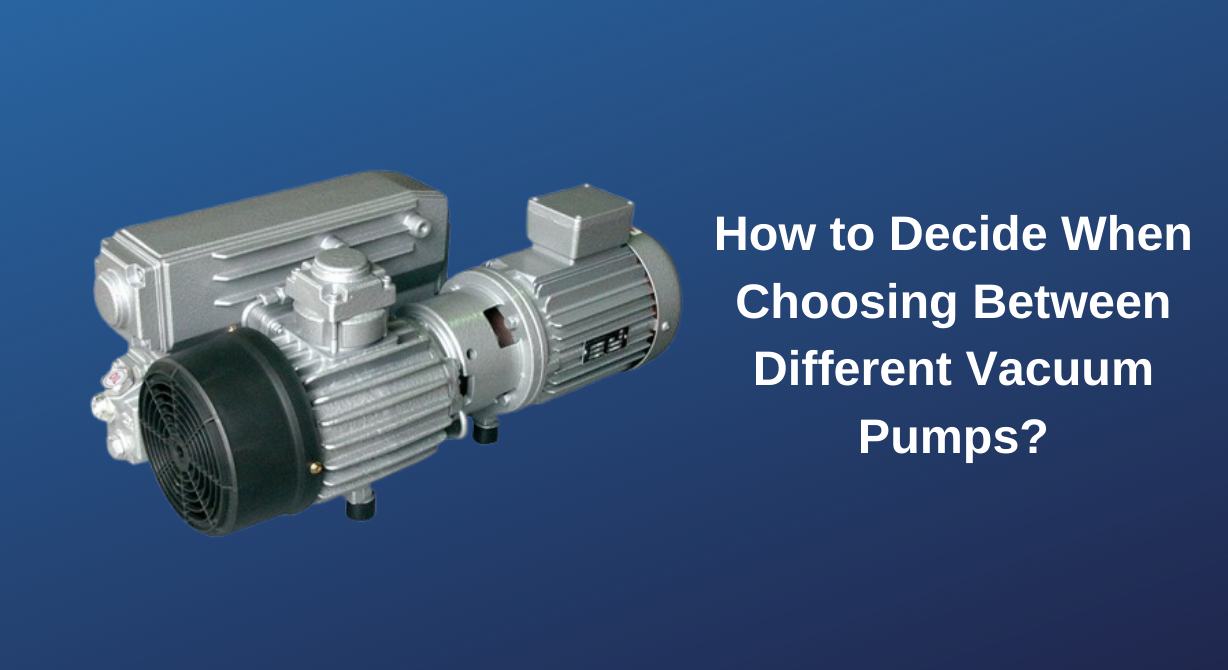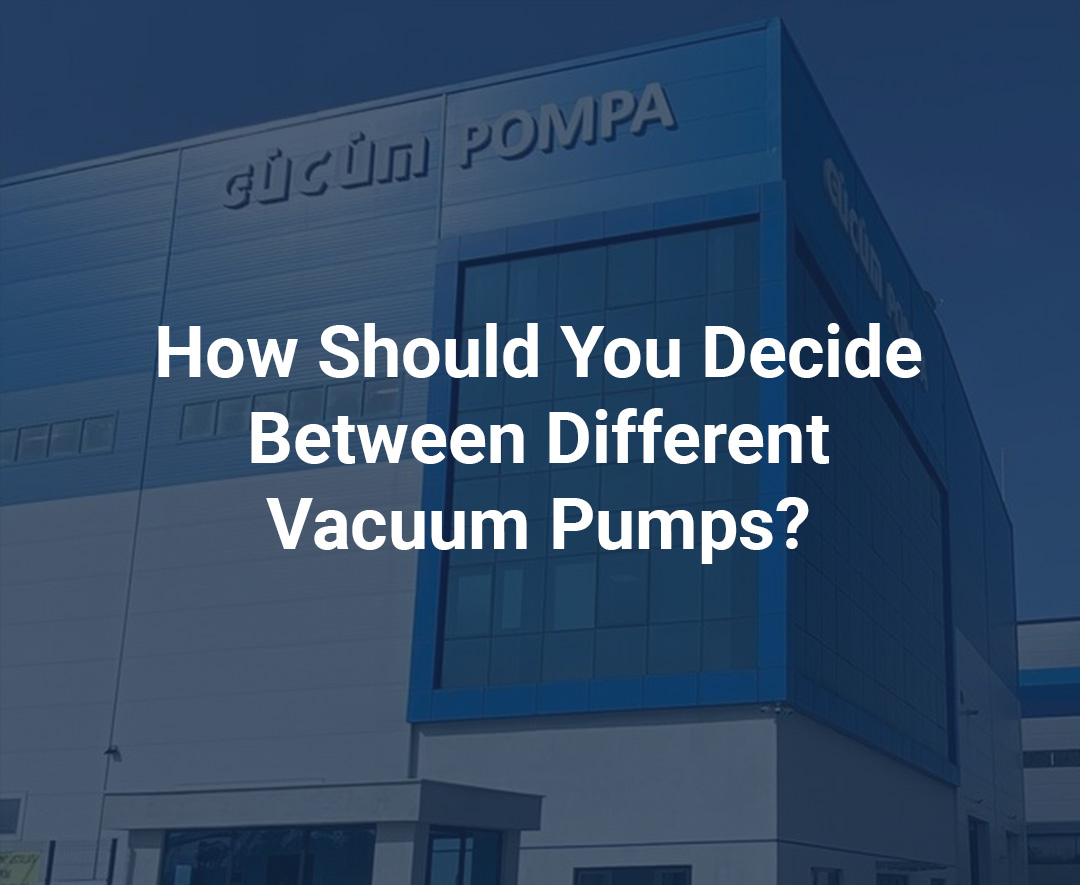How Should You Decide Between Different Vacuum Pumps?
Vacuum pumps play an important role in many industrial applications and processes. However, making the right choice among different types of vacuum pumps can be an important decision for businesses. Because different applications require different vacuum levels and performance requirements. In this article, we'll cover the important factors you need to consider to make a wise choice between different vacuum pumps.

Understand Your Business and Practice
Before embarking on the right vacuum pump selection, it is important to fully understand the needs of your business and the requirements of your application. Factors such as the industry in which the vacuum pump will be used, the type of application, the targeted vacuum level, continuous operation or intermittent use of the pump should be considered. A thorough understanding of your application and business will help you determine which type of vacuum pump is best for you.
Different Types of Vacuum Pumps
Vacuum pumps come in different types and each is better suited for certain applications. Here are some common types of vacuum pumps:
Suction Pumps
Suction pumps are pumps that physically absorb gases. This type of pump is suitable for low vacuum levels. Diaphragm and piston suction pumps are examples of this category.
Root Pumps
Root pumps evacuate gases using the space between two high-speed rotating rotors. They are preferred to achieve high vacuum levels.
Diffusion Pumps
Diffusion pumps discharge gas molecules by pushing a high velocity jet into the gas. They are used to achieve very high vacuum levels.
Turbo Pumps
Turbopumps are vacuum pumps in which a high-speed rotor pushes the gases out. They are used in conjunction with diffusion pumps to achieve higher vacuum levels.
Performance and Capacity
When choosing a vacuum pump, performance and capacity play an important role. The vacuum level, efficiency, and speed of the pump should match the needs of your application. Determine the vacuum level you need and choose an appropriate vacuum pump. In addition, the capacity of the pump, ie the amount of gas it can pump per hour or per day, must also be taken into account. A performance and capacity selection suitable for the needs of your business provides an efficient vacuum system.
Maintenance and Operating Costs
When choosing a vacuum pump, you should consider not only the purchase cost, but also the maintenance and operating costs. A low maintenance and energy efficient vacuum pump will be more economical in the long run. At the same time, try to minimize operating costs by considering factors such as spare parts supply and service support.
Reliability and Durability
The vacuum pump is critical to the efficient operation of your business. Therefore, it is important to choose a reliable and durable vacuum pump. By choosing high-quality and well-reputed brands, you can ensure that the pumps are long-lasting and provide continuous operability for your business.
Warranty and Service Support
The warranty and service support provided is also an important factor when purchasing a vacuum pump. In case of possible malfunctions or maintenance needs, being able to get support quickly and effectively is critical for the uninterrupted operation of your business. It is therefore a wise decision to choose suppliers that offer reliable warranty and service support.
